ASIO chief Mike Burgess says Australians should pause and reflect on the need to tackle the scourge of anti-Semitism
In his strongest comments yet on the issue, ASIO chief Mike Burgess is calling on all Australians to reflect and act on the scourge of anti-Semitism allowed to flourish in the country.
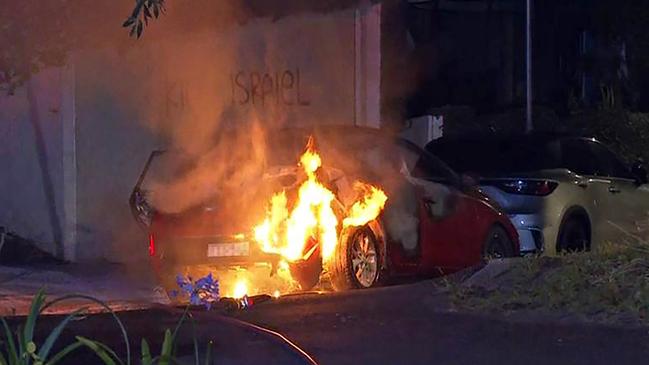
ASIO chief Mike Burgess says all Australians should pause to reflect on the scourge of anti-Semitism and ask how it has been allowed to flourish in this country.
In his strongest comments yet on the issue, the nation’s most powerful spy says anti-Semitism is a form of hate that defies logic, is un-Australian and is likely to get worse, posing an unacceptable threat to Jewish Australians.
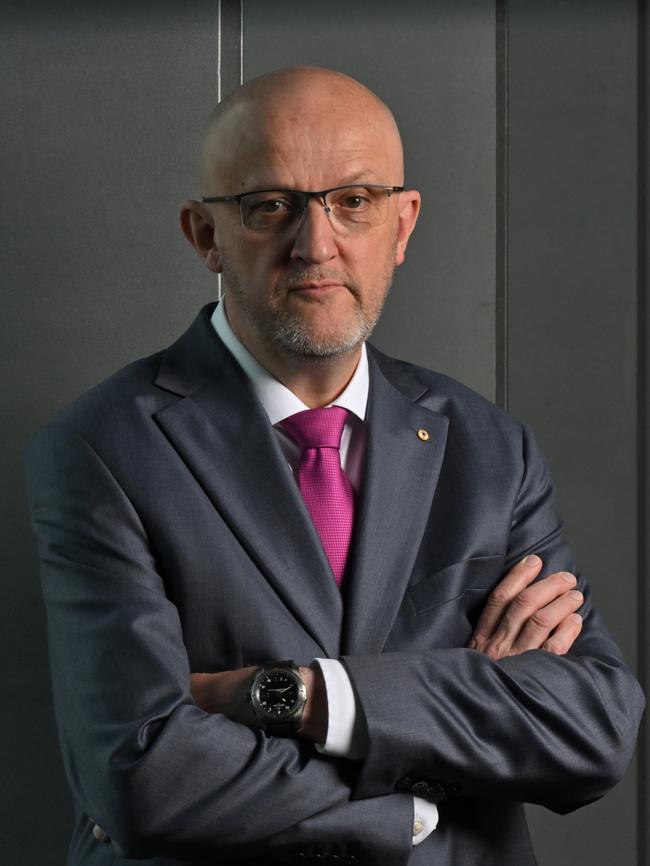
Mr Burgess’ strident comments came after delivering his the most grim security assessment in almost six years as head of the country’s domestic spy agency.
He said this week that “Australia has never faced so many different threats at scale at once”, outlining a fast-growing range of threats, from traditional terrorism, espionage and foreign interference to newer security challenges such as forced repatriations, including attempts at state-sponsored murder, and the rise of AI.
But in an exclusive interview following his speech, Mr Burgess revealed deep frustration about the rapid rise of anti-Semitism and the inability of some to separate the politics of Israel from Australian Jews.
“It defies logic, does it not, that actually people in our country can hold Jewish Australians to account for the actions of the Israeli government?” he said. “(It also) defies logic that they can hold state or territory governments, let alone the federal government (responsible), for the actions of a sovereign nation, Israel.”
Mr Burgess said although anti-Semitism had sadly always been present in Australia, it was shocking to see how quickly it raised its head at a Sydney Opera House protest days after the October 7, 2023, massacre by Hamas, “even before the Israeli government responded”.
“I think we all want to pause and think about that,” he says. “People have a right to protest (but) when they start shouting slogans about Jews, and even if it was, ‘where’s the Jews?’ Not ‘gas the Jews’, that’s still pretty damn intimidating for people of Jewish faith or people of Jewish culture.”
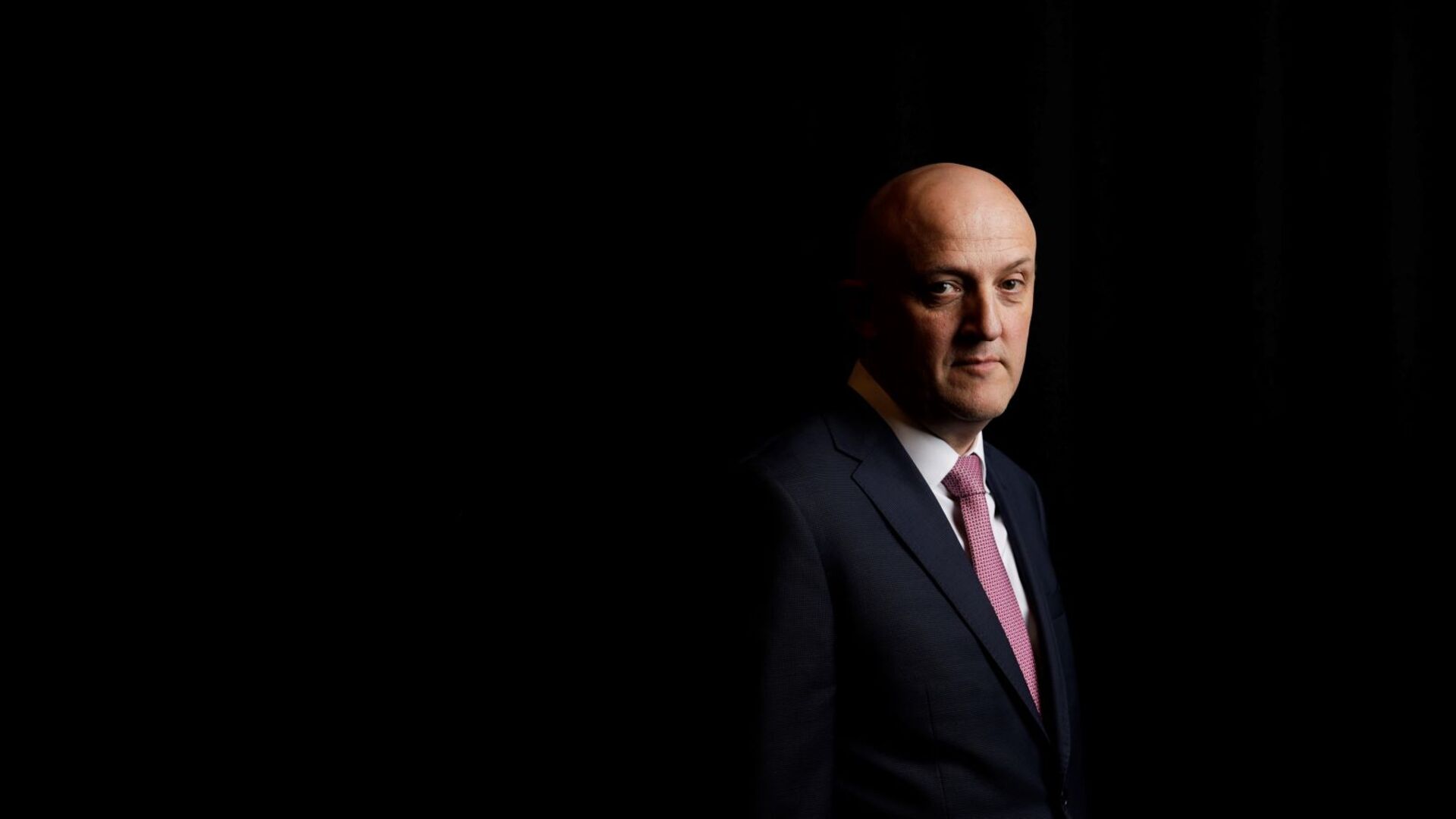
Mr Burgess said the rapid escalation of anti-Semitism since that time, with intimidation or attacks on synagogues, schools, homes and prominent Jewish Australians was “totally unacceptable”.
“How we could allow ourselves to get to this point, I’m lost for words because this is not the country we are … and we should all look into why we’ve allowed that to happen.
“We should, as a society, not accept what we’re seeing.”
Mr Burgess warns that the incidence of anti-Semitism had probably not yet plateaued because, even though there is now a fragile peace in Gaza, there is always “a lag” between cause and effect on security challenges.
“I am concerned they have not yet plateaued because these things have a lag. So we have to be mindful of that. No one should just go, ‘great, everything’s good, the heat’s going to settle down’.
“People are entitled to actually believe in a Palestinian state. They’re entitled to think the way the Israeli government has chosen to prosecute is wrong. That’s fine, but that should not translate into threats or intimidation or provocative acts and violent acts against Jewish Australians. They are not the Israeli government. They are Australians. They’re their fellow Australians.”
Mr Burgess’ annual security assessment, which came after ASIO lifted the terror threat from “possible” to “probable” last August, raised concerns about the growing prevalence of radicalised minors, saying online radicalisation was now occurring “within days and weeks”, rather than years.
He said the public, including parents, had a role to play in helping alert ASIO to potential radicalisation of minors who were not on the spy agency’s radar.
“It’s really easy for kids to find horrible material online, and now they can go from a couple of clicks away, if they’re looking at something which is just, you know, something about being male, the importance of that, with a couple of clicks, they can find themselves in a deeply violent, misogynistic propaganda site that is not good for them.”
One of the most disturbing developments of the past year was Russia, Iran and other countries ramping up sabotage operations against Australia, including against critics in diaspora communities.
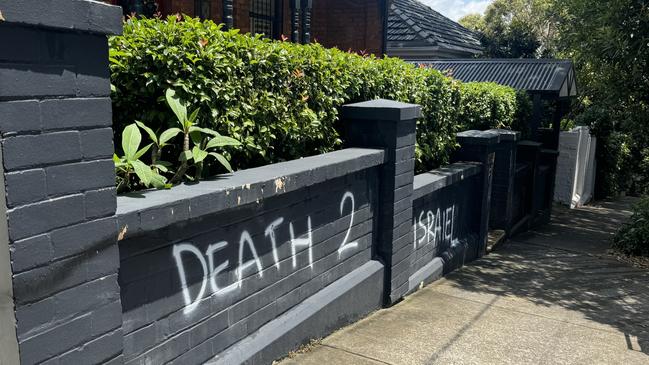
He revealed that several foreign states, which he declined to name, had plotted to lure those critics overseas with the intent of injuring or even murdering them.
Mr Burgess said “coercive repatriations” of members of Australia’s diaspora communities was a growing and underreported problem. He said the people targeted needed to better understand that they could seek help and protection from Australian authorities.
Mr Burgess was particularly critical of Russia in his annual assessment, accusing it of a “reckless” intelligence campaign towards Ukraine’s allies around the world. He said the threat of both physical sabotage and cyber-enabled sabotage in Australia by Russian spies was real.
“Russia has done acts of sabotage in Europe for supporters of Ukraine,” he says. “We are a supporter and supplier of Ukraine. Therefore we should not assume Australia would not be, could not be, a target of the Russian state.”
The Russian ambassador did not attend Mr Burgess’ speech in Canberra this week but the representative of Australia’s most aggressive intelligence adversary, China, was there.
As Chinese ambassador Xiao Qian departed the event he told The Australian that it was helpful for him to better understand ASIO’s perspectives on security. Asked why China’s ambassador had not been invited to previous ASIO assessments, Mr Burgess said: “I got to a point of going, actually, that’s a mistake, isn’t it? We should invite the Chinese ambassador.
“I think it’s fair to say the way we’re handling our relationship, it’s a different footing these days. It’s important to have relationships with countries … you can’t co-operate or disagree unless you’re actually having a relationship.”
On defence, Mr Burgess said the AUKUS submarine agreement was a priority target not just for Australia’s strategic rivals but also “including countries we consider friendly”.
He believes foreign intelligence services in the future could seek to exploit community debate about the benefits of AUKUS by trying to undermine it through misinformation campaigns.
“As the project matures, (foreign adversaries) might go ‘the best way to stop Australia from having this is to turn the community against nuclear-propelled submarines’ … (they will) stir the pot, which will be detrimental to our national interests.”
One of the few positive observations to come from Mr Burgess’ assessment is that, as things stand, ASIO has not detected attempts by foreign players to interfere in the coming federal election.
“I think we’ve got to remember our election system is pretty damn robust,” he says. “There’ll be a lot of noise during the election. (But) most of the interference isn’t really interference, it is the political debate happening. (But) of course, if we do see (genuine foreign interference) we will act.”


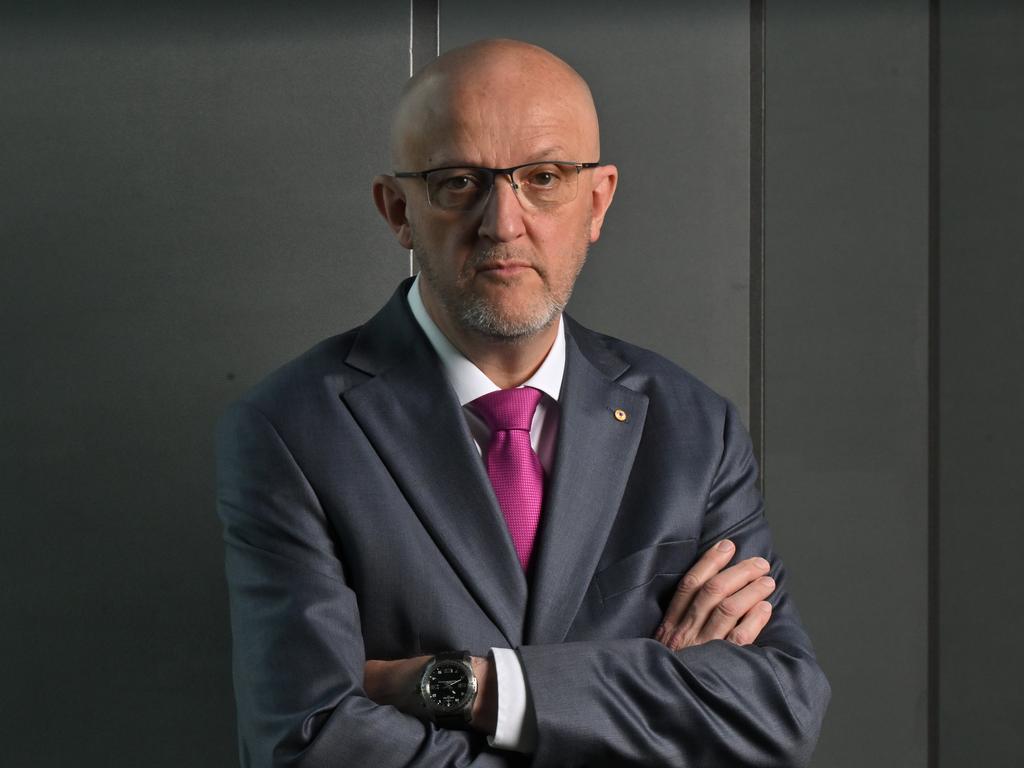



To join the conversation, please log in. Don't have an account? Register
Join the conversation, you are commenting as Logout